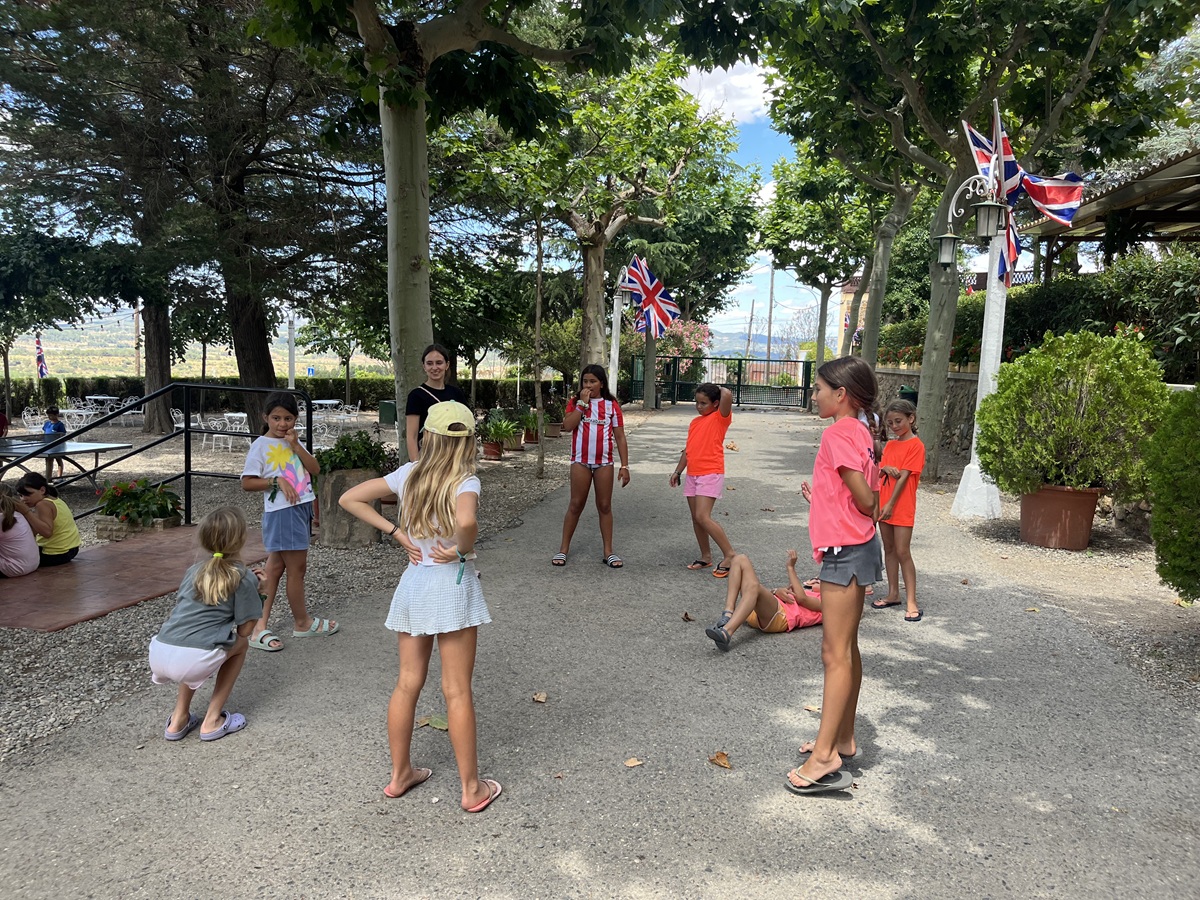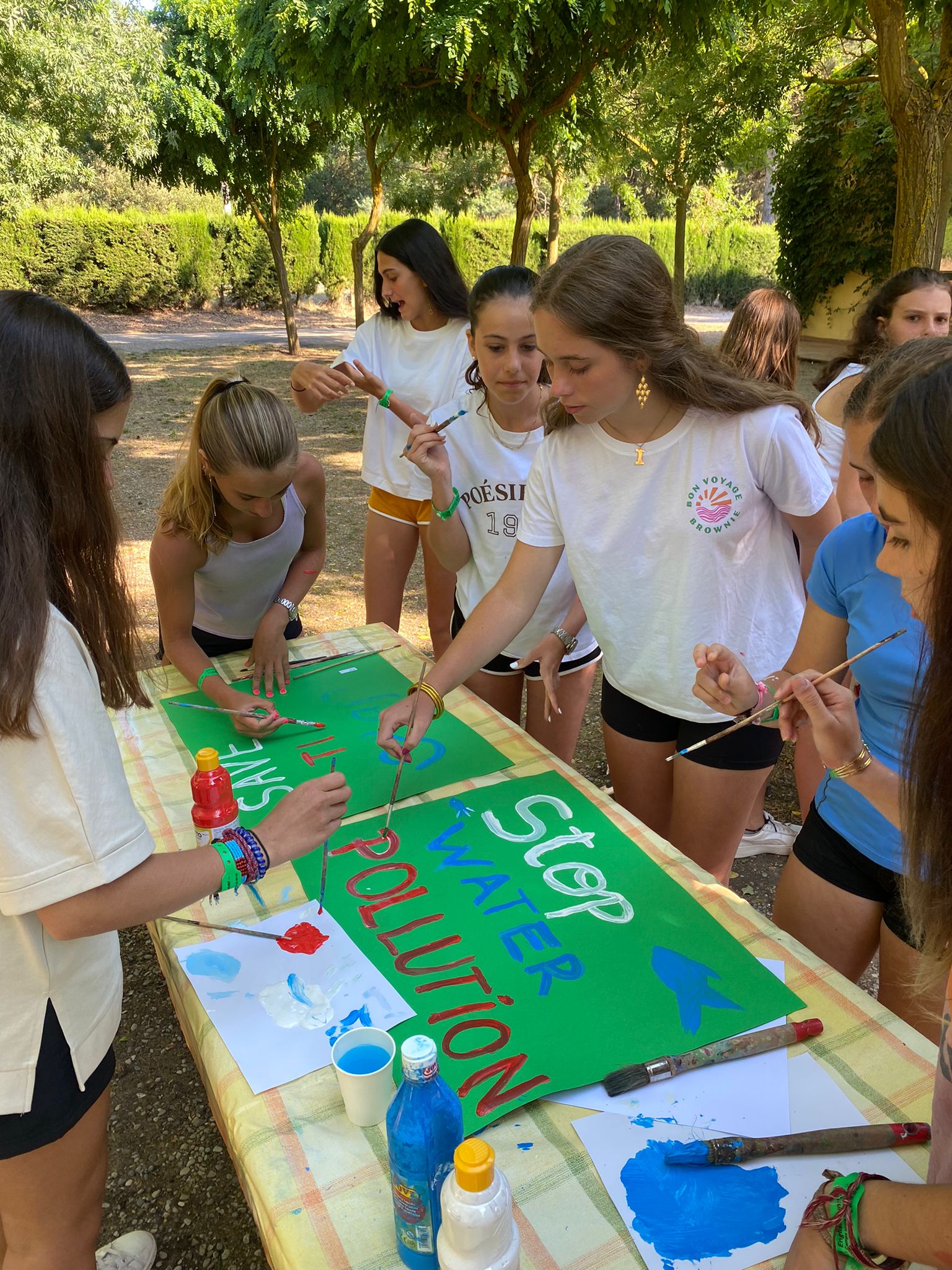
More and more families are looking for their children to learn English in a practical and fun way, outside the traditional classroom. After-school activities in English for children are an excellent opportunity for kids to improve their vocabulary, gain fluency, and build confidence while having fun and developing other skills.
From our experience organizing workshops and educational activities, we have seen that children learn best when English becomes a tool to play, explore, and create, rather than just a subject. That’s why we are sharing real and useful examples that can inspire both parents and educators.
Benefits of after-school activities in English for children
· Improved pronunciation and listening skills: through interaction with native or bilingual teachers.
· Expanded vocabulary in real-life contexts (cooking, sports, theatre, etc.).
· Greater confidence in speaking: children feel more at ease when the language is integrated into activities they enjoy.
· Fun linked to learning: they learn without even noticing, because English becomes part of the game.
Ideas for after-school activities in English for children
1. Theatre workshops in English
Theatre is one of the most effective activities. Children learn to express themselves physically and verbally while stepping into a role.
· Recommended age: from 6 years old.
· Duration: 1–2 hours per week.
· Skills developed: pronunciation, intonation, memory, teamwork.
· Practical tip: choose short plays with simple dialogues and songs so younger children can participate enthusiastically.

2. Cooking club in English
Cooking while following instructions in English turns the class into a hands-on learning lab.
· Recommended age: 7 to 12 years old.
· Duration: 60–90 minutes per session.
· Skills developed: vocabulary related to ingredients, actions (mix, cut, bake), and measurements.
· Real example: preparing a homemade pizza with each child playing a role (chef, sous-chef, assistant).
· Practical tip: use picture cards with words to reinforce vocabulary.
3. Bilingual sports games
Sports in English are ideal because they combine movement, teamwork, and constant communication.
· Recommended age: from 5 years old.
· Duration: 1 hour.
· Typical activities: relay races, mini matches, obstacle courses with instructions in English.
· Practical tip: repeat short, motivational phrases in English (“Good job!”, “Faster!”, “Pass the ball!”) to help children internalize everyday expressions.
4. Arts and crafts
Arts and crafts are among the easiest after-school activities to implement.
· Recommended age: any age.
· Duration: 45 minutes to 1 hour.
· Skills developed: vocabulary related to colors, shapes, materials, and action verbs (cut, glue, paint).
· Real example: making birthday cards, masks, or seasonal decorations.

5. Outdoor excursions and games
Contact with nature provides authentic situations to practice English.
· Recommended age: from 6 years old.
· Duration: half-day or full-day.
· Typical activities: treasure hunts, team challenges, observing plants or animals with English-speaking guides.
· Practical tip: divide children into teams and give them an English team name to boost motivation.
6. Children’s reading club in English
Reading is an excellent way to expand vocabulary and spark imagination.
· Recommended age: 7 years and older.
· Duration: 45–60 minutes per session.
· Format: reading short passages aloud and discussing them in a group.
· Practical tip: illustrated storybooks or comics make understanding and retaining new words easier.
7. Technology and digital games
Many children enjoy learning through screens. Integrating English into robotics, programming, or digital games workshops can be highly effective.
· Recommended age: 8 years and older.
· Duration: 1–2 hours.
· Real example: programming a robot by following instructions in English or solving challenges on educational platforms online.
Our proposal at English Summer
At English Summer, we have been seeing for over 40 years how children learn English naturally when they integrate it into experiences they are passionate about. That’s why, in addition to after-school activities, we also offer English summer camps for children, where theatre, sports, arts and crafts, excursions, and much more are combined — all in a 100% bilingual environment with international staff.
From experience, we know that living in English for several consecutive days, while sharing activities and games, truly makes the difference in children’s fluency and confidence.

Practical tips for choosing the right activity
· Adapt the activity to the child’s age: younger children learn best with songs and games, while older ones enjoy creative or technological challenges.
· Prioritize the child’s motivation: if they are not having fun, their learning in English will be affected.
· Check the teacher’s training: ideally, they should be bilingual or native speakers with experience working with children.
· Combine different activities: theatre + sports, or cooking + crafts, so learning is more varied.
Learning English while playing
After-school activities in English for children not only reinforce what they learn at school, but also give them the confidence to use the language in daily life. The key is for children to experience English as something natural, connected to fun and discovery.
Ultimately, what matters is offering varied experiences that are close to their interests, guided by professionals who can convey enthusiasm and confidence. This way, learning English becomes an adventure that children enjoy to the fullest.

